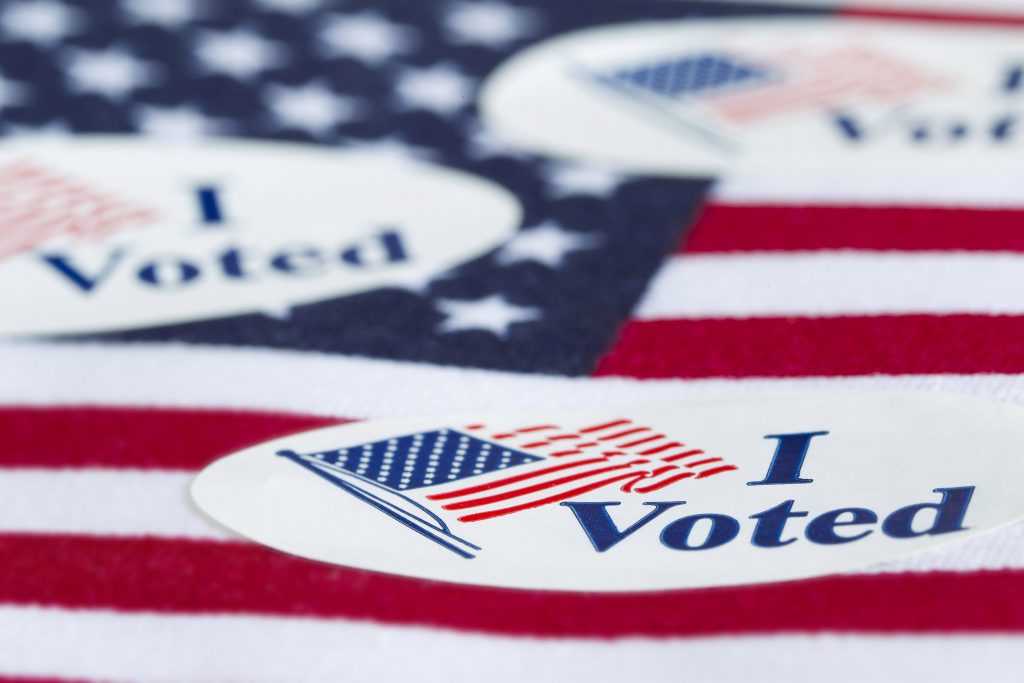
In the run-up to the 2016 election, there was serious concern about Donald Trump’s willingness to accept the outcome of the race. Trump had a consistent track record of questioning the legitimacy of any defeats or setbacks he suffered, and when asked during one of his debates with Hillary Clinton if he would accept the outcome of the race he merely said he would “look at it at the time.”
Bizarrely, Trump’s view didn’t change even after his shocking victory. The then-President Elect made clear he didn’t accept the legitimacy of the election he had won, repeatedly claiming (without evidence) that millions of illegal voters in California had cost him the popular vote.
The target of Trump’s ire has since shifted from the West Coast to the East. In 2017, Kris Kobach – Kansas Secretary of State and chair of a farcical commission tasked by the President with rooting out “voter fraud” – alleged that voter fraud had allowed Hillary Clinton to win the state of New Hampshire in the 2016 election and Democrat Maggie Hassan to defeat incumbent Republican Senator Kelly Ayotte.
Independent fact-checkers immediately disproved the claim and Kobach’s commission ultimately disbanded without achieving anything, but that didn’t prevent Kobach, Trump and other Republicans from spreading the fever dream that thousands of Democrats had flocked to New Hampshire from neighboring Vermont and Massachusetts to cast votes. Trump repeated the claim at a rally in the state last week.
That prompted an exasperated Ellen Weintraub, chairwoman of the Federal Elections Commission, to publicly demand that the President substantiate his claims. It was not the first time she had made such a demand.
Unproven Claims of Voter Fraud in the Granite State
While New Hampshire isn’t the nation’s largest or most important battleground state (the winner receives just four electoral votes), it is one of the most closely contested states in the country. In 2016, Hillary Clinton won the state by approximately 3,000 votes, while Hassan defeated Ayotte by slightly more than 1,000 votes.
The details of the voter fraud argument made by Kobach and Trump are fairly unimportant – essentially, Republicans have pointed out that more than 5,000 voters in the 2016 election hadn’t acquired a New Hampshire driver’s license at the time of the vote. However, individuals in New Hampshire are legally allowed to vote even if they hold a driver’s license in another state – eligible voters can be “domiciled” in New Hampshire while “residing” in another state. This distinction is particularly important for college students, who usually lean toward Democratic candidates.
When Trump first began pushing the New Hampshire voter fraud claim in 2017, Weintraub publicly called on him to substantiate the allegations. He did not, but he has continued to press the claim, including at the rally in Manchester, New Hampshire last week.
The renewed claim prompted Weintraub, a Democrat appointed by George W. Bush, to again publicly request proof from the President. In a letter published on Twitter, Weintraub wrote, “Our democracy depends on the American people’s faith in our elections. Your voter-fraud allegations run the risk of undermining that faith.”
Weintraub concluded with a shot at the President’s private sector past: “To put it in terms a former casino operator should understand: There comes a time when you need to lay your cards on the table or fold.”
Republican Election Fraud
It almost goes without saying at this point that there’s no meaningful amount of voter fraud in the United States – the number is surely closer to zero than it is to the millions of fraudulent votes cited by Republicans. But the true irony of the GOP’s voter fraud obsession is that the rare cases of actual election fraud in the US have mostly implicated Republicans.
The most prominent recent example is in North Carolina’s 9th Congressional District, where candidates are currently campaigning in a re-do election ordered by the state. The second election is a necessity after credible evidence arose that absentee ballot fraud on behalf of Republican Mark Harris irretrievably tainted the initial 2018 election, which Harris won by about 900 votes.
In addition, the partisan bickering over the implications of the Mueller Report has served to hide the indisputable reality that a foreign government – Russia – interfered in the 2016 election in an effort to aid Trump, the Republican candidate. These efforts included disseminating documents stolen from Democratic Party officials, digital advertising campaigns aimed at suppressing African-American turnout and spreading actual fake news and attempts to hack into the election systems of all 50 states.
It is a uniquely Republican world view that suggests largely hypothetical concerns over voter fraud outweigh actual, factual, documented attempts by foreign powers to manipulate the electoral system.



Leave a Comment